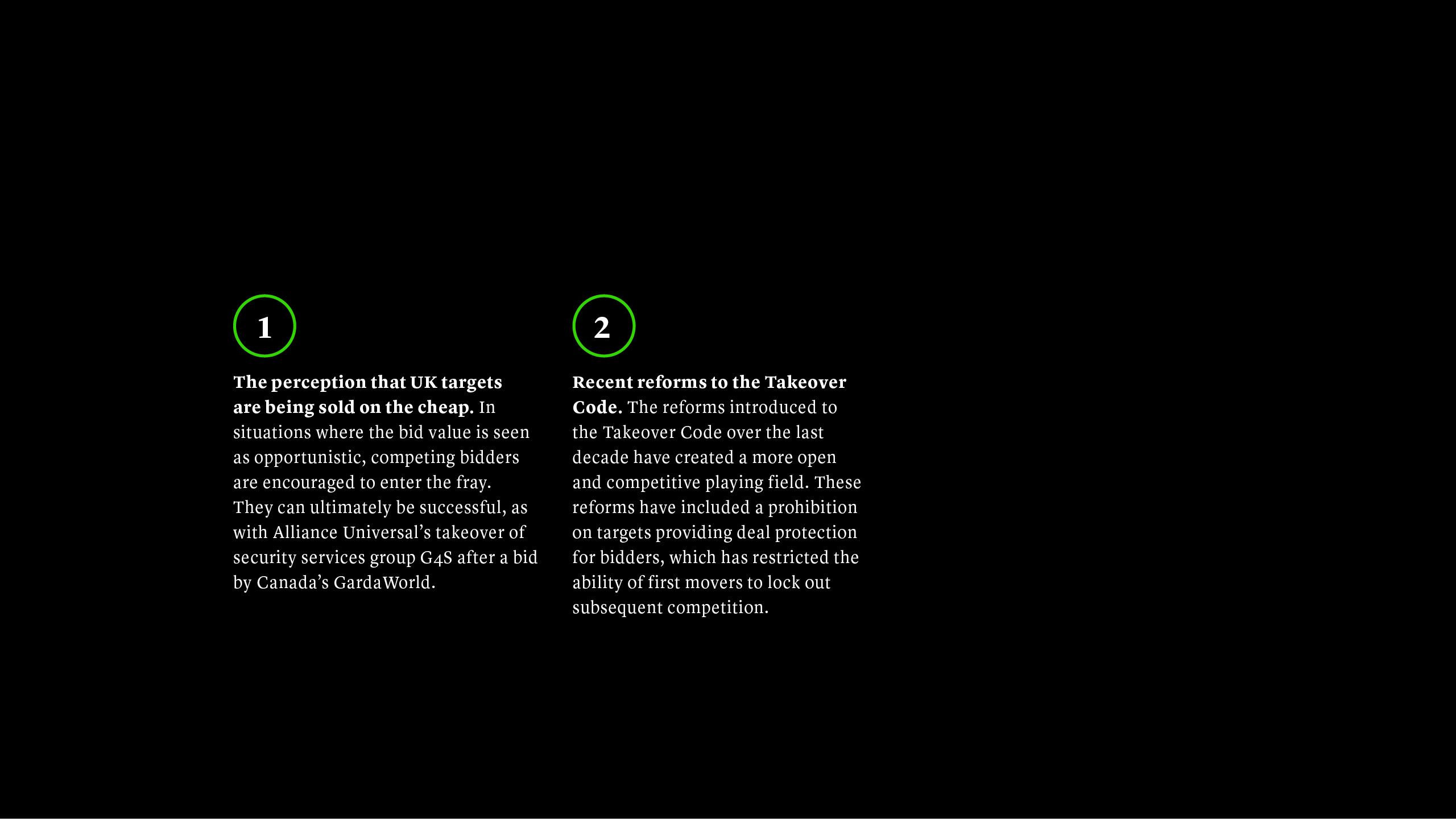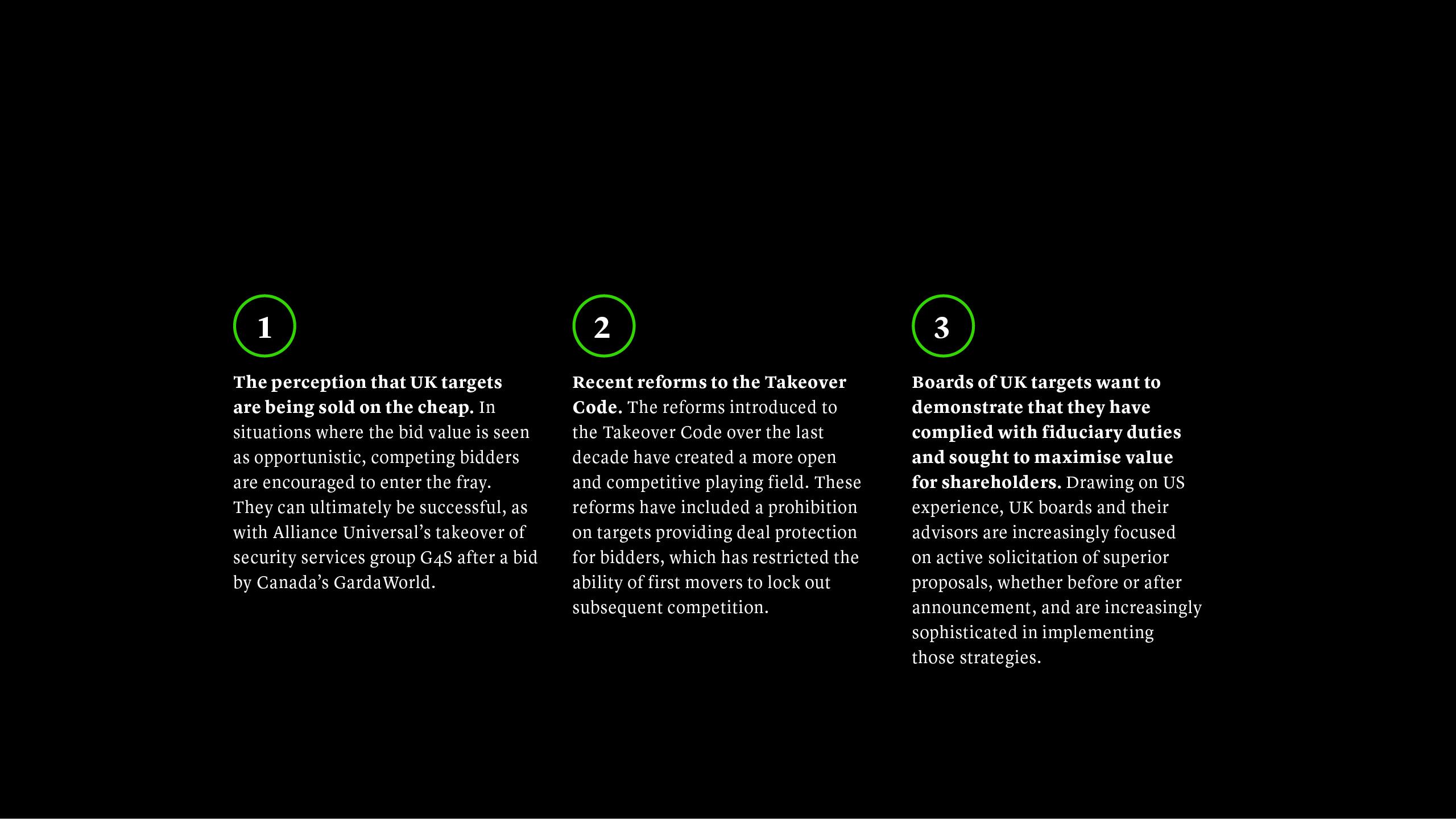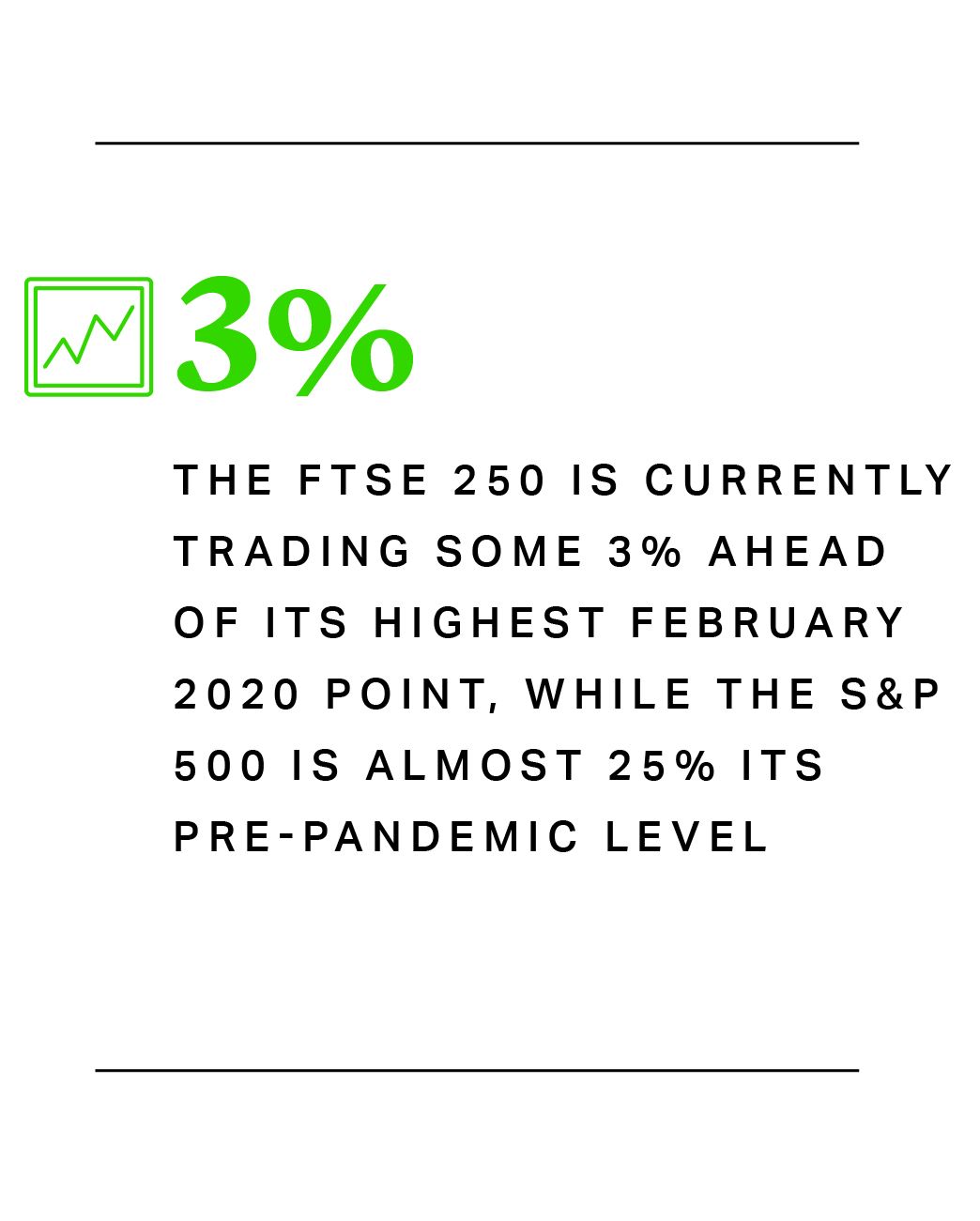Private Equity
Targets UK PLC
Despite Rising
Deal Complexity

UK listed companies have been firmly in private equity’s sights since the start of the year. On various valuation metrics, the UK’s stock markets are materially cheaper than international stock markets. By some estimates, on a forward P/E basis, the UK market trades at a 40% discount to the U.S. markets and is cheaper than Italy and the emerging markets. A relatively weak pound, the rapid rollout of vaccinations, and the Brexit agreement at the end of last year have also contributed to rising confidence and activity. In the first five months of the year alone, 13 bids were announced by sponsors for UK targets including bids for the FTSE 250 companies G4S, Signature Aviation, John Laing and UDG Healthcare.
We expect take-private activity in the UK to remain robust as sponsors look to deploy significant reserves of capital. However, as activity has risen so has complexity, presenting challenges for potential buyers to overcome. Here we outline four major features of the current environment.
1. Disagreements on Value
Differences of opinion about valuations are particularly acute during periods of significant dislocation. While UK share prices have rebounded, they lag other major markets. The FTSE 250 is currently trading some 3% ahead of its highest February 2020 point, while the S&P 500 is almost 25% above its pre-pandemic level. Target boards in receipt of bid proposals have a difficult question to consider – should they recommend bid proposals at a significant premium to current (cheap) share prices?
One result of the situation is protracted and difficult negotiations. For instance, in the recent bid for Signature Aviation, Signature indicated that one of the bidders had made six independent proposals while another had made five. More recently, Cinven made five approaches to fund administrator Sanne. So long as UK public market valuations lag other developed market peers, there will be ongoing disagreement about offers.
3. Increasing Prevalence of Competing Bids
There has been an increasing number of competitive bids in the current environment. This is for various reasons.



4. Increased Risk of Political Intervention
A number of European countries, including the UK, France, Germany and Italy, have introduced or strengthened foreign investment regimes. Fears have been raised that these regimes will be used for political objectives or industrial policy. One particularly stark recent manifestation of these fears was the French government reaction to Canadian convenience store group Alimentation Couche-Tard’s proposed bid for French supermarket group Carrefour. The French government intimated it would not support the proposed bid on food security grounds, which came as a surprise.
The UK government, which importantly will soon introduce significantly enhanced national security laws, also has a history of seeking to intervene in bids on grounds which seemed tangentially related to national security. An undertaking to maintain British employment was sought from Advent International in its takeover of defence and aerospace group Cobham, ostensibly on the grounds that the UK’s nationality security was threatened.

Regulatory Focus Expands
With public and political scrutiny high, competition regulators are under pressure to demonstrate that they are not weak in the face of mergers. At the same time, they are looking to incorporate broader goals into their decision making, such as the alleviation of inequality or the adverse impacts on climate change. These issues add to the challenges surrounding takeovers of publicly listed companies, requiring sponsors to prepare for greater complexity and more scrutiny.
Our Recent Experience in UK Take Privates
We have worked on a number of take privates in the past few years including some of the most significant and complex transactions in the UK market.
Combined with our pre-eminent competition expertise globally, we believe our experience on some of the biggest and most complex bids in the UK market leaves us very well placed to guide clients through the complexity of successfully implementing UK take privates.
Our Experience Has Included:
- Acting for Cascade on the consortium bid for Signature Aviation referred to above;
- Acting for Allied Universal on its successful competing bid for G4S referred to above;
- Acting for Ivanhoe Cambridge on the consortium bid for EasyHotel;
- Acting for American Express in connection with the bid by Global Business Travel for Hogg Robinson plc;
- Acting for Fidessa in relation to recommended acquisition by Ion Investment Group and competing bid by Temenos; and
- Acting for Loxam on its successful competing bid for Lavendon

European Key Contacts
Private Equity




